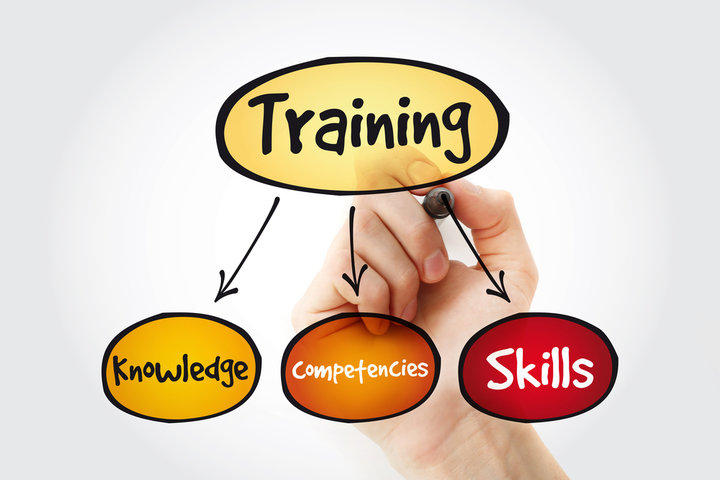DEI Training for Companies and Organisations
As the business landscape continues to evolve, the importance of diversity, equity, and inclusion (DEI) in the workplace has become more apparent. DEI training for companies is not just a trend, but a necessity for organizations seeking to foster a more inclusive and equitable environment. This article explores the importance of DEI training, its benefits, implementation strategies, and how to measure its effectiveness.
Understanding DEI Training
DEI training refers to the educational program designed to promote understanding and awareness of diversity, equity, and inclusion in the workplace. It aims to create a work environment where all employees feel valued and respected, regardless of their race, religion, gender, age, sexual orientation, or disability.
Such training programmes are crucial in today’s globalized world, where workforces are increasingly diverse. They help in breaking down barriers, reducing unconscious bias, and promoting a culture of acceptance and respect.
The Components of diversity equity and inclusion training
Effective DEI training typically includes three core components: diversity, equity, and inclusion. Diversity refers to the representation of different groups within a company. Equity involves ensuring fair treatment, access, opportunity, and advancement for all employees, while addressing the barriers that may hinder the full participation of some groups. Inclusion is about creating a culture where all team members feel valued and that their contributions matter. Each of these components is critical and interrelated, and a comprehensive DEI training programme should address all three.
Benefits of DEI Training
Diversity equity and inclusion training offers numerous benefits to companies. It fosters a culture of respect and acceptance, which can lead to increased employee engagement and productivity. It also helps companies attract and retain diverse talent, which can lead to more innovative and effective problem-solving.
Moreover, DEI training can help companies avoid legal issues related to discrimination and harassment. It can also enhance a company’s reputation, making it more attractive to potential clients and partners who value diversity and inclusion.
Increased Employee Engagement
Employees who feel valued and included are more likely to be engaged in their work. They are more likely to stay with the company, contribute their best ideas, and go the extra mile to help the company succeed. DEI training can foster this kind of engagement by promoting a culture of respect and inclusion.
Studies have shown that companies with high levels of diversity and inclusion tend to have higher levels of employee engagement. This can lead to increased productivity and profitability.
Attracting and Retaining Diverse Talent
DEI training can also help companies attract and retain diverse talent. A diverse workforce brings a wide range of perspectives and experiences, which can lead to more innovative and effective problem-solving. Moreover, many job seekers today prioritize diversity and inclusion when choosing a company to work for. By demonstrating a commitment to DEI through training programmes, companies can attract a wider pool of talent and reduce turnover rates.
Implementing DEI Training
Implementing diversity equity and inclusion training in a company involves more than just conducting a one-off training session. It requires a strategic and ongoing commitment to promoting diversity, equity, and inclusion at all levels of the organization.
Here are some strategies for implementing effective DEI training:
- Start with a clear understanding of your company’s current state of diversity, equity, and inclusion. This can involve conducting surveys or audits to identify areas of strength and opportunities for improvement.
- Develop a comprehensive DEI training programme that addresses the specific needs of your company. This could involve a combination of workshops, seminars, online courses, and other training methods.
- Ensure that the training is relevant and engaging. Use real-world examples and interactive activities to help employees understand the importance of DEI and how they can contribute to it.
- Make diversity training a regular part of your company’s professional development offerings. This shows that your commitment to DEI is ongoing and not just a one-time initiative.

Measuring the Effectiveness of DEI Training
Like any other training programme, it’s important to measure the effectiveness of DEI Training. This can help you identify areas of improvement and ensure that your training efforts are making a real impact.
Here are some ways to measure the effectiveness of DEI training:
- Conduct pre- and post-training surveys to measure changes in employees‘ attitudes and behaviours related to DEI.
- Monitor changes in employee engagement and retention rates. If DEI Training is effective, you should see an increase in these metrics over time.
- Look at the diversity of your workforce and leadership team. Effective training should lead to a more diverse and inclusive company.
- Consider external recognition, such as awards or certifications, as a measure of your company’s commitment to DEI.
In conclusion, DEI Training for companies is a crucial component of a successful business strategy. It fosters a culture of respect and inclusion, attracts and retains diverse talent, and enhances a company’s reputation. By implementing effective DEI training and measuring its impact, companies can ensure that they are creating a truly inclusive and equitable work environment.


